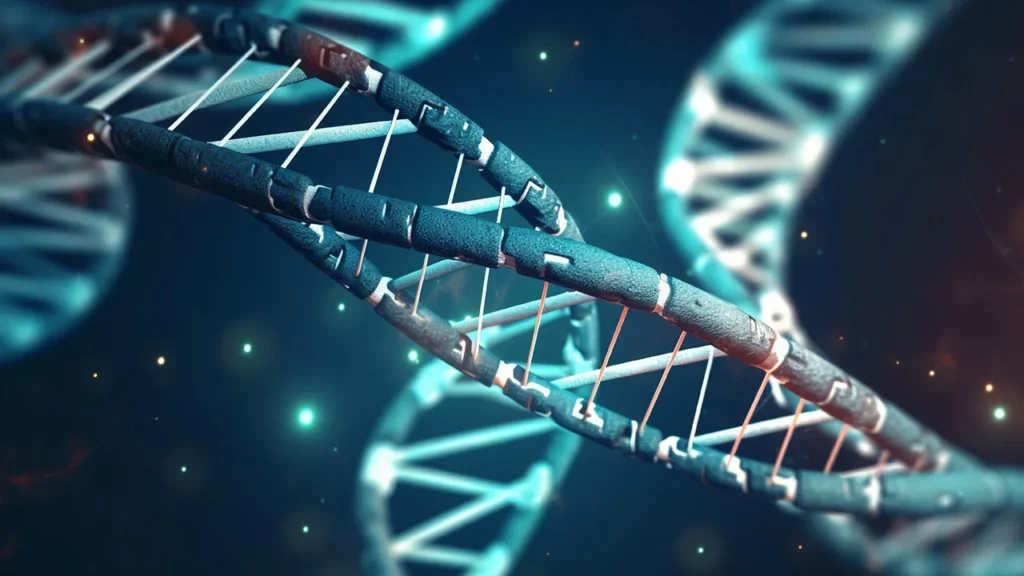In the intricate dance of life, where nature meets nurture, the interplay between genetics and nutrition is profound. Our genes, the blueprint of our existence, dictate much about who we are, but they are not immutable. Emerging research is shedding light on how our dietary choices can influence the expression of our genes, a field known as Nutrigenomics. Understanding this connection can empower us to make informed decisions about our health and well-being.
Connection between Nutrition and Genetics: Theories and Practical Applications
Following is a comprehensive guide that illustrates well and explains how are nutrition and genetics linked.
The Genetic Landscape: Nature’s Blueprint

Genetics forms the foundation of our being. We inherit a unique set of genes from our parents, shaping everything from our physical characteristics to our susceptibility to certain diseases. However, genes are not destiny. While we cannot alter our genetic code, we can influence how our genes are expressed—a concept known as epigenetics.
Epigenetics: The Intersection of Genes and Environment
Epigenetics refers to changes in gene expression that occur without altering the underlying DNA sequence. These changes can be influenced by various environmental factors, including a healthy diet. Through epigenetic modifications, our genes can be switched on or off, leading to different outcomes in terms of health and disease risk.
Research published in the Journal of Nutritional Biochemistry highlights the role of diet in epigenetic regulation, showing how specific nutrients can modulate gene expression pathways (Li et al., 2018). This underscores the importance of understanding how nutrition can impact our genetic destiny.
For those interested in exploring further, keeping an eye on international environmental vacancies on Jooble.org could provide valuable insights into the broader context of environmental influences on epigenetic mechanisms.
The Nutritional Influence: Feeding Our Genes

What we eat plays a crucial role in shaping our epigenetic landscape. Certain nutrients act as methyl donors or cofactors for enzymes involved in epigenetic processes. For example, folate, found in leafy greens and legumes, is essential for DNA methylation, a process that regulates gene expression. Similarly, omega-3 fatty acids, abundant in fish and nuts, have been shown to influence gene expression related to inflammation and cardiovascular health.
Research published in the Proceedings of the National Academy of Sciences demonstrates the impact of omega-3 fatty acids on gene expression, highlighting their potential role in preventing chronic diseases (Jump, 2002). This emphasizes the importance of incorporating nutrient-rich foods into our diet for optimal genetic health.
Read Also: Cancer-Fighting Foods
Nutrigenomics: Personalized Nutrition for Genetic Wellness
Nutrigenomics takes personalized nutrition to the next level by considering an individual’s genetic makeup. By analyzing genetic variations, known as single nucleotide polymorphisms (SNPs), researchers can identify how specific dietary factors may interact with an individual’s genes. This information allows for tailored dietary recommendations aimed at optimizing health and preventing disease.
Studies published in Nature Reviews Genetics provide insights into the potential of nutrigenomics in personalized medicine, highlighting its role in disease prevention and management (Kaput & Rodriguez, 2004). This underscores the transformative potential of harnessing nutritional genomics for individualized healthcare.
Practical Applications: Putting Theory into Practice

Incorporating the principles of nutrigenomics into everyday life can have profound implications for health. For example, individuals with a genetic predisposition to certain conditions, such as heart disease or diabetes, may benefit from targeted dietary interventions aimed at mitigating risk factors. Similarly, pregnant women can optimize fetal development by ensuring adequate intake of nutrients involved in epigenetic regulation.
Research published in the American Journal of Clinical Nutrition highlights the importance of personalized dietary recommendations in managing chronic diseases, underscoring the role of nutrigenomics in improving health outcomes (Ferguson & Schmuck, 2012). This reinforces the practical significance of integrating genetic information into dietary strategies for personalized wellness.
Looking Ahead: The Future of Nutritional Genetics
As our understanding of nutrigenomics continues to evolve, so will our ability to harness nutrition’s power to impact genetic expression positively. From personalized dietary plans based on genetic profiles to innovative therapies targeting specific epigenetic pathways, the future holds great promise for the field of nutritional genetics.
Cutting-edge research published in Trends in Molecular Medicine explores the potential of nutrigenomics in precision medicine, offering insights into its applications in disease prevention and treatment (Ordovas & Corella, 2004). This illuminates the path forward for leveraging nutritional genetics to revolutionize healthcare.
Nutrition and Genetics are Linked – Debate is Endless
In conclusion, the relationship between nutrition and genetics is a complex and dynamic one, with far-reaching implications for health and wellness. By recognizing the role of diet in shaping our genetic destiny, we can take proactive steps to optimize our genetic expression and lead healthier, happier lives.
